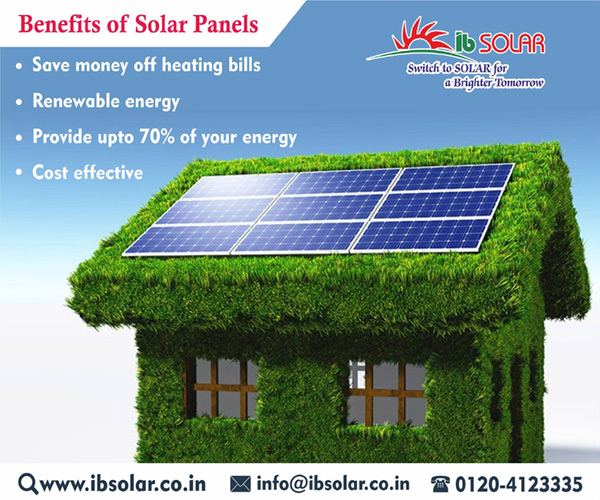Simply Solar Illinois – Tailored Solar Solutions for All Budgets
Exactly How Solar Energy Can Aid You Save Money and Minimize Your Carbon Impact
The assimilation of solar energy into your energy portfolio presents an engaging possibility for both financial savings and ecological stewardship. By harnessing the sun's energy, homeowners can significantly reduce their month-to-month utility expenditures while additionally guarding versus the changability of future energy costs. The transition to solar adds to a significant decline in carbon exhausts, straightening individual financing with broader eco-friendly objectives. As numerous government rewards appear, the concern develops: just how can one successfully browse the preliminary investments and recurring benefits of solar technology to make best use of both financial and ecological gains?
Comprehending Solar Energy Savings
While the transition to solar energy commonly entails a preliminary investment, comprehending solar power cost savings is important for house owners and services alike. Solar power systems can dramatically minimize electrical power costs by harnessing the sunlight's power, equating right into considerable long-lasting monetary benefits.
Moreover, solar energy systems might certify for different monetary incentives, consisting of tax obligation credit ratings and rebates, further boosting their cost-effectiveness. The schedule of web metering allows customers to offer excess energy back to the grid, creating an added profits stream. These elements add to the total savings connected with solar power.

Along with direct monetary cost savings, solar power provides the included advantage of increasing residential property worth. Houses furnished with photovoltaic panels are commonly more attractive to buyers, as they promise reduced power expenses - Simply Solar Illinois. Understanding these elements is important for anybody considering solar energy, as it highlights not just the prospective monetary gains, however likewise the broader environmental and financial benefits of adopting renewable energy remedies
First Expenses vs. Long-Term Advantages
When evaluating solar power, it is important to consider the preliminary expenses against the lasting advantages. The ahead of time investment for solar panels, installation, and relevant tools can be substantial, commonly ranging from $15,000 to $30,000, depending on the system dimension and home energy requirements. This first expense might hinder some house owners; nevertheless, it is crucial to take into consideration the possible savings in time.
Once mounted, solar power systems can significantly minimize and even eliminate regular monthly power costs, bring about significant lasting economic benefits. Researches suggest that home owners can conserve anywhere from $10,000 to $30,000 over the lifespan of their planetary system, generally 25 years. Furthermore, several states supply motivations, tax obligation debts, and rebates that can balance out preliminary prices, making solar much more accessible.

Decreasing Your Carbon Footprint
Minimizing your carbon footprint is a crucial consideration in his response today's ecologically mindful society, and embracing solar energy is among one of the most reliable strategies to achieve this goal. Solar power is a tidy, sustainable resource that considerably reduces dependence on nonrenewable fuel sources, which are significant contributors to greenhouse gas emissions.

Additionally, the widespread fostering of solar technology encourages the advancement of eco-friendly tasks and sustains technologies in power storage space and performance. The even more people and companies purchase solar energy, the better the cumulative decrease in carbon exhausts, cultivating a cleaner environment for future generations.
Federal Government Incentives and Refunds
Adopting solar power not only profits the setting but can also bring about substantial financial savings, especially with the availability of federal government incentives and discounts. Different government, state, and regional programs are designed to urge property owners and services to purchase solar energy systems, making the shift a lot more budget-friendly.
Among one of the most prominent incentives is the Federal Investment Tax Obligation Credit Rating (ITC), which allows solar system proprietors to deduct a considerable portion of the setup expenses from their government tax obligations. This reward has been essential in reducing the in advance costs related to solar energy systems. In addition, many states use their own tax obligation credit scores, grants, and discounts that can even more improve financial savings.
Furthermore, some local federal governments provide property tax exceptions for solar setups, making certain that home my sources owners do not my review here deal with increased real estate tax as an outcome of their renewable resource financial investments. Energy firms may likewise provide motivations, including net metering and feed-in tariffs, which permit solar power customers to market excess power back to the grid.
Choosing the Right Planetary System
Picking the appropriate planetary system is critical for making best use of energy performance and financial benefits. The choice hinges on several factors, consisting of energy needs, budget plan, and readily available area. Home owners need to start by analyzing their power consumption to establish the system size required for optimal efficiency.
Next, think about the different types of solar modern technologies readily available. Simply Solar Illinois. Photovoltaic (PV) panels are the most common, converting sunshine directly right into electrical power, while solar thermal systems focus on heating water. Each type has distinct benefits relying on specific needs
Budget plan factors to consider are also extremely important. Preliminary setup expenses can differ considerably, so it is very important to contrast quotes from several companies and check out financing options. Federal government incentives and discounts can further decrease the monetary concern, making solar systems a lot more available.
Conclusion
In summary, solar energy provides a viable service for attaining considerable price savings while simultaneously lessening carbon discharges. The preliminary investment, though substantial, returns considerable long-lasting financial benefits, with prospective cost savings ranging from $10,000 to $30,000 over 25 years. In addition, the ecological advantages of solar power add to lasting practices essential for combating environment change. Government rewards boost the expediency of solar technology fostering, encouraging a change in the direction of a cleaner, much more economically efficient energy resource.